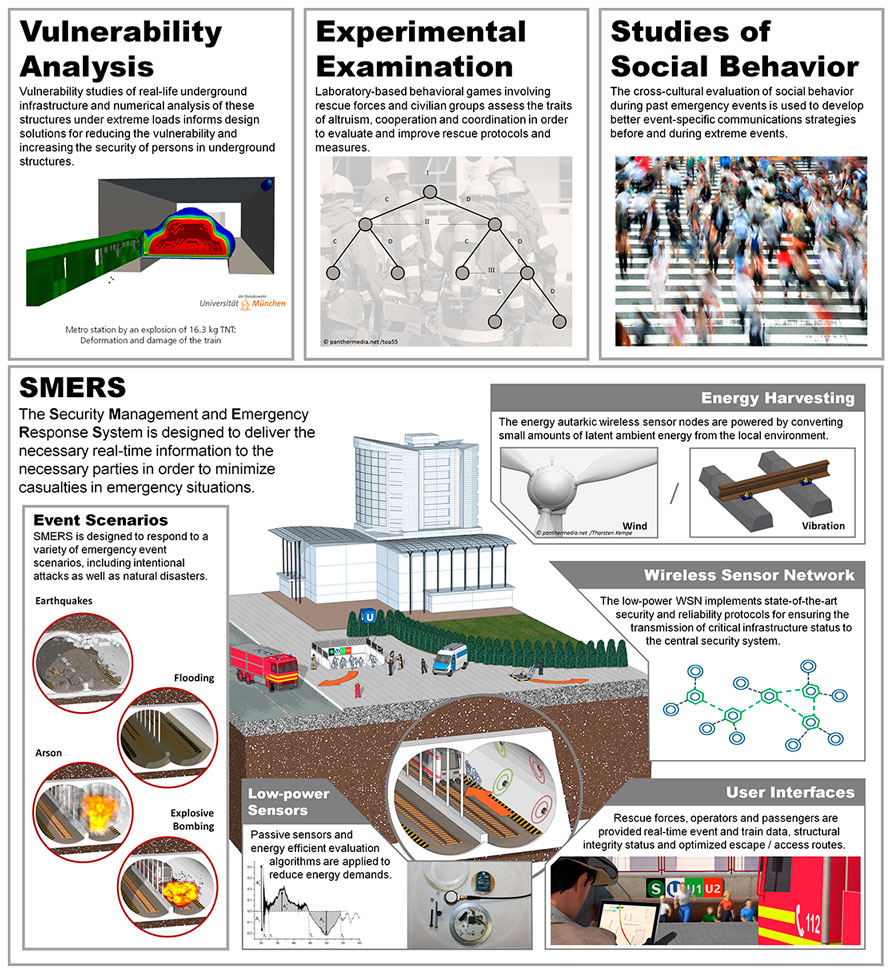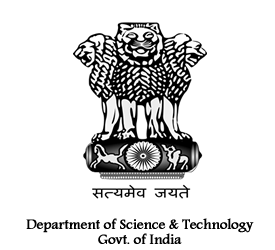Urban development worldwide, and specifically in developing countries in Asia, Africa and
South America has become a greater challenge as more than half of the planet’s population (over three billion people) now lives in urban areas. Global urbanization contributes significantly to each country’s economic, social and cultural development. With increase in urbanization and population densities, traffic congestion in urban areas is also increasing. Many urban areas thus choose various mass rapid transport systems in order to provide people in urban areas with efficient and eco-friendly transport.
Since the development of new underground transportation systems in some countries is often very dynamic, the same or similar safety-related technological challenges as we encounter them in Germany have to be met. New vulnerabilities to society arise for instance, from power blackout, flooding, fire or terrorist attacks in underground transportation systems. Recent examples like the terrorist attacks in Madrid [2004 March 11th] and London [2005 July 7th] and the flooding of Metro and street tunnels in Manhatten/New York during storm “Sandy” in October/November 2012 have shown that this type of mass transportation infrastructure is highly vulnerable. In addition to such large events, smoke generation and fire in tunnels pose a significant threat to the security and safety of persons in underground installations, as these incidents are happening at much higher rate. In Berlin, several times every year, the fire brigades are involved in extinguishing fire in metro tunnels and train stations. These events pose not only a risk to passengers, but also to the responding rescue forces.
For these reasons, the question of how to improve security and safety of persons in metro systems (be it passengers or emergency response forces) has to be answered, and new procedural as well as technical solutions have to be developed. Since the larger events are thankfully still quite rare, it is crucial to develop studies that allow the fire fighters or the security personal to train such scenarios in a simulated environment.
SenSE4Metro
Objective
The overall objective of the proposed research is to improve the security of persons in urban underground trains and underground stations in emergency situations and catastrophes, resulting from:
- Terrorist attacks on underground trains and train stations
- Natural disasters, such as earthquakes and flooding
Such situations always require the evacuation, rescue and recovery of persons from underground trains and stations. To significantly improve the security of persons in such situations, the following tasks for the project are defined:
SenSE4Metro is funded through the joint programme “International cooperation in civil security research: Cooperation between Germany and India.”
The funding organization is the Federal Ministry of Education and Research (BMBF) in Germany.


